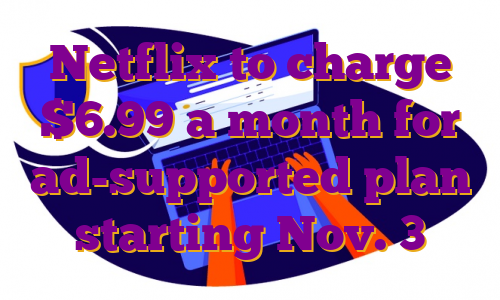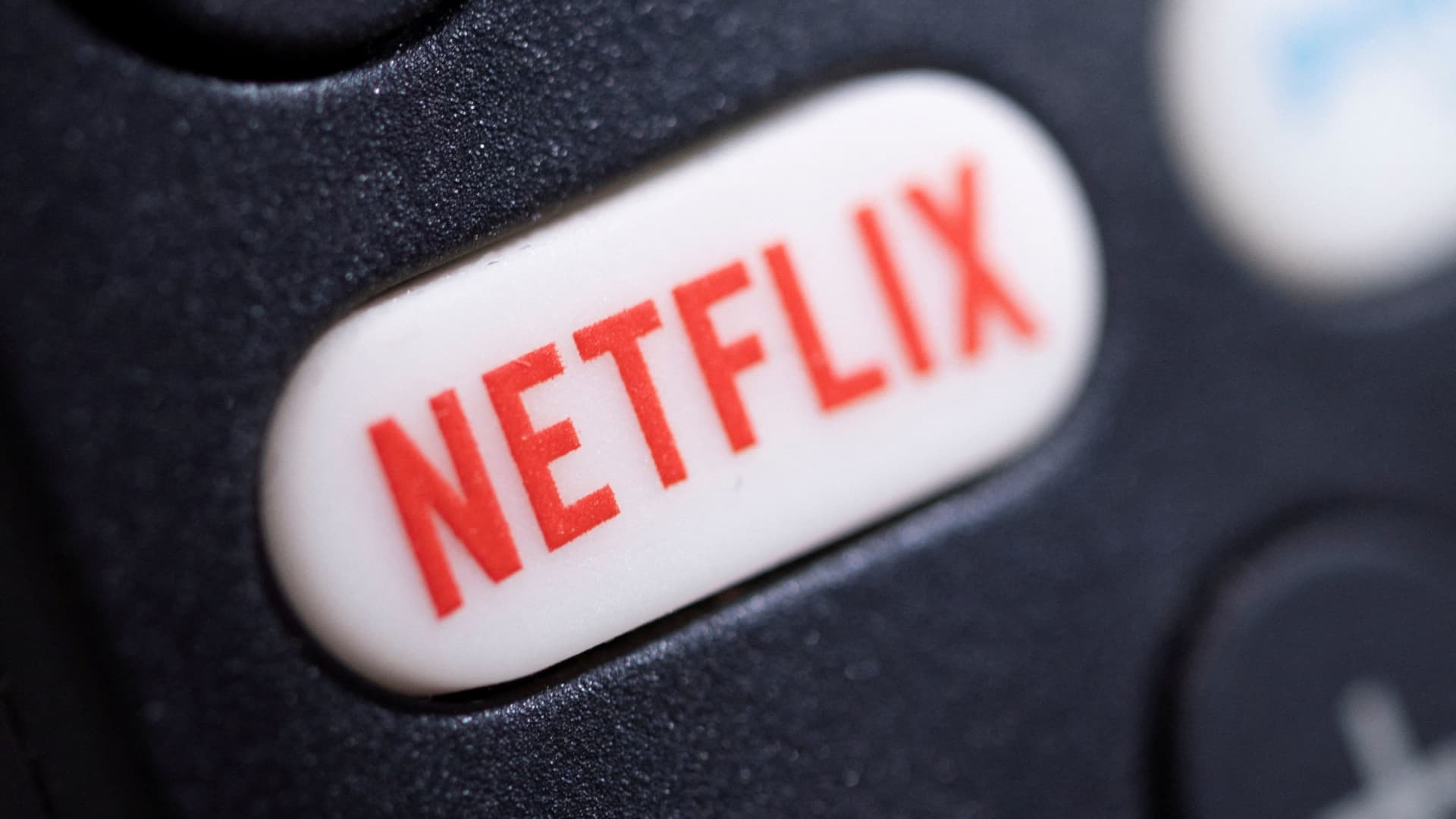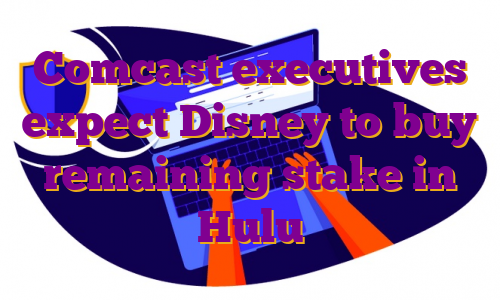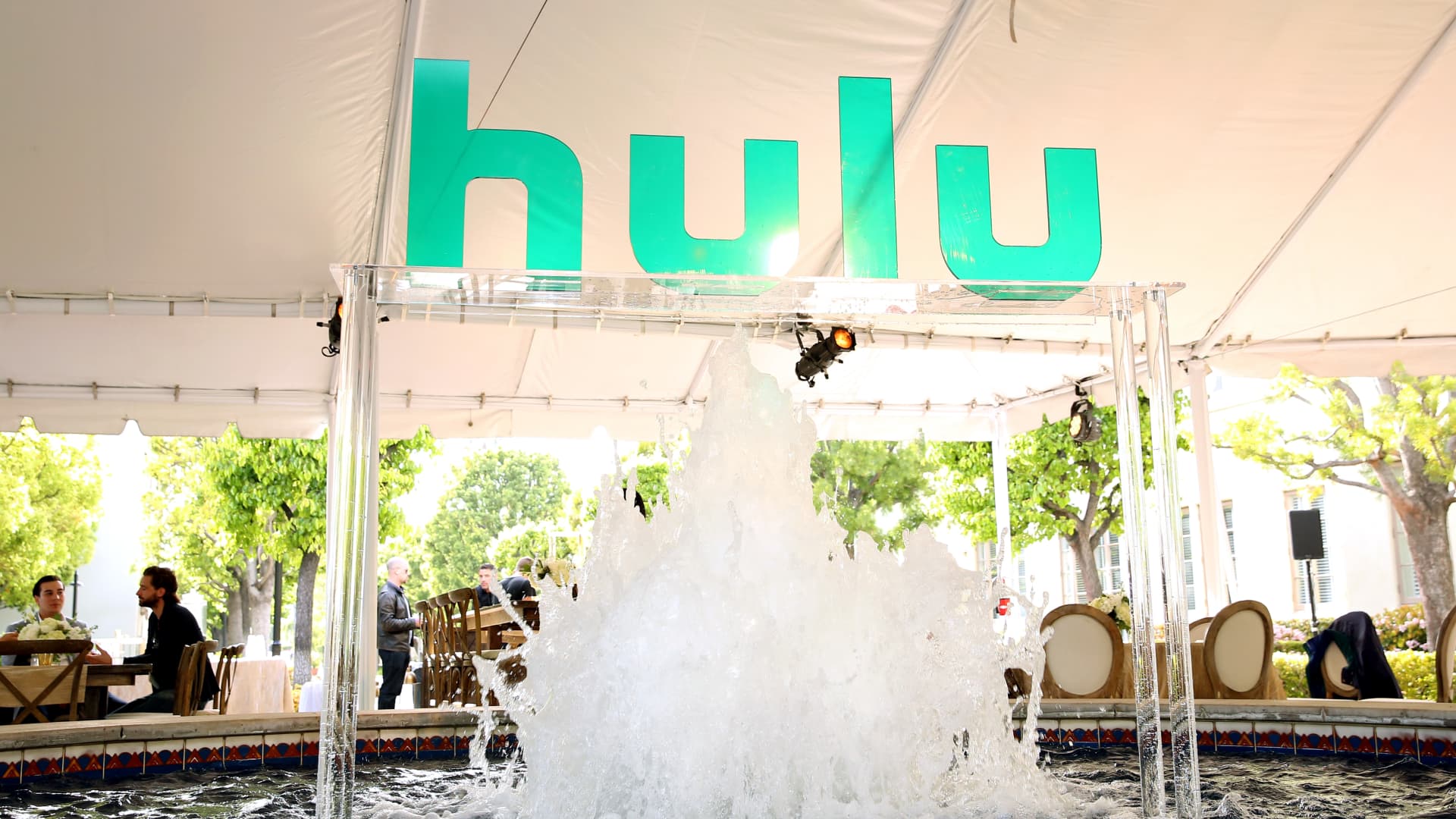The Netflix logo is seen on a TV remote controller, in this illustration taken January 20, 2022.Dado Ruvic | ReutersNetflix will charge $6.99 per month for its new advertising-supported tier, which the company will roll out in the U.S. on Nov. 3.Netflix’s “Basic with ads” tier will include an average of four to five minutes of commercials each hour and won’t give users the ability to download movies and TV series. A limited number of TV series and movies will initially be unavailable due to licensing restrictions.Ads will be 15 or 30 seconds in length and will play before and during Netflix’s content. Companies will have the ability to prevent ads from appearing on content they deem unsavory or unsuitable. To help advertisers understand its reach, ratings company Nielsen will use its standard digital audience measurement, Digital Ad Ratings, in the U.S. beginning in 2023.Netflix is launching its first less-expensive plan with commercials after years of rejecting the concept. The move comes as subscriber growth has plateaued in recent quarters. Netflix lost subscribers in the first two quarters this year and expects to add just 1 million customers in the third quarter. The company has about 221 million subscribers globally, which makes it the largest worldwide streaming service.Netflix will announce its third-quarter earnings after the market closes Tuesday and plans to unveil new subscriber and revenue forecasts, according to Chief Operating Officer Greg Peters. Netflix is partnering with Microsoft for its advertising-supported service. The streaming company will have hundreds of advertisers at launch and has nearly sold out its inventory, the company said in a media conference call.Initially there will be no advertising within kids programming and new movies. Older films may have mid-roll advertising.Pricing below DisneyNetflix’s $6.99 per month pricing is less expensive than ad-supported Disney+ and Hulu, which will both be $7.99 per month when Disney+’s ad tier launches in December. HBO Max with ads is $9.99 per month.Netflix priced the service so that any customer who switches to the ad-supported service from the ad-free basic plan will have a “neutral to positive” effect on the company’s revenue, according to Peters.That suggests Netflix will get at least $3 a month per user in advertising revenue.”We want to offer consumers choice and figure out what the best offering is for them,” Peters said during the conference call.Video resolution for Netflix’s advertising tier will be 720p rather than 1080p, the quality of Netflix’s standard plan that costs $15.49 per month. The company’s basic plan without advertising is $9.99 per month and also has 720p resolution.The advertising tier will initially be available in Canada and Mexico on Nov. 1, followed by Australia, Brazil, Canada, France, Germany, Italy, Japan, Korea, Mexico, the U.K. and the United States on Nov. 3. Spain will launch on Nov. 10.The price of streamingNetflix
$6.99 − basic with ads
$9.99 − basic without ads
$15.49 − standard without adsHBO Max
$9.99 − with ads
$14.99 − without ads Hulu
$7.99 − with ads
$14.99 − without ads Paramount+
$4.99 − with ads
$9.99 − without adsPeacock
$4.99 − premium with ads
$9.99 − without adsDisney+
$7.99 − with ads*
$10.99 − without ads**Available starting in DecemberWATCH: How Netflix lost its edge in the streaming wars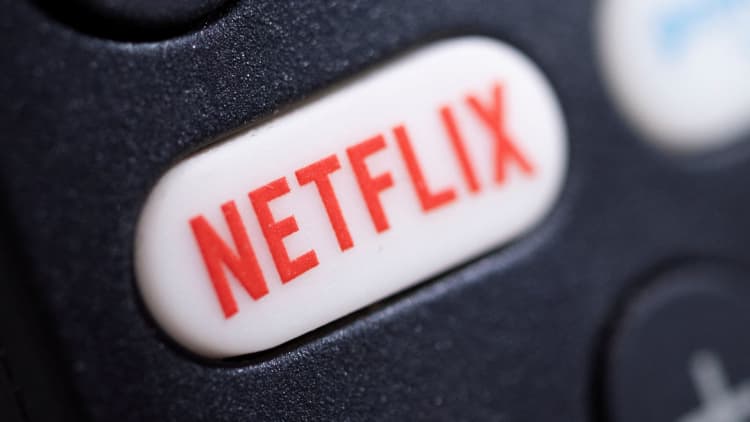 .
.
‘Avatar’ returns to theaters as Disney hypes James Cameron’s long-delayed sequel
AvatarSource: Walt Disney StudiosThe Na’vi return to the big screen this weekend as Disney looks to reignite interest in its newly acquired Avatar franchise, three months before the debut of the long-delayed sequel, “Avatar: The Way of Water.”Bringing the highest-grossing film of all time back to theaters has two purposes for Disney: drum up excitement for “The Way of Water” and fill a vacant spot on the theatrical calendar. The sequel is one of four due over the next decade.The rerelease of the original film is a sort of litmus test for whether audiences still want to visit its eco-conscious science fiction world.”Many questions have been asked about the film’s pop culture legacy over the past decade, but we also have to remember that James Cameron has been doubted before and proven many wrong,” said Shawn Robbins, chief analyst at BoxOffice.com.Directed by Cameron, the mastermind behind “Titanic” and “The Terminator,” “Avatar” opened in late 2009 to wide acclaim and massive financial success, eventually earning nine Oscar nominations. But it never captured the cultural relevance that Star Wars or the Marvel Cinematic Universe – both also owned by Disney – have enjoyed. Toy sales fizzled and cosplayers donning heavy blue makeup at pop culture fan conventions have become few and far between.”Naturally all eyes will be on the box office performance this weekend, as this may serve as an indicator of audience interest in the December release of ‘The Way of Water,'” said Paul Dergarabedian, senior media analyst at Comscore.”Avatar” captivated audiences more than a decade ago, in part because of the technology that Cameron helped develop to film and animate the movie. The film was shot using the Fusion Camera System, which was created by Cameron and cinematographer Vince Pace. Academy Award-nominated films like Martin Scorsese’s “Hugo” and Ang Lee’s “Life of Pi” also utilized this camera system.Previous systems used two cameras because filmmakers had determined that the human brain processed different information from different sides of the brain. So, one part of the brain would process the image’s movement, while the other would process what was happening in the image.Set more than a decade after the events of the first film, “Avatar: The Way of Water” tells the story of the Sully family.DisneyCameron and Pace devised a camera that could capture images the same way that a human eye does. The results were breathtaking — just look at the ticket sales. During its initial run, “Avatar” snared $2.78 billion globally. It added additional ticket sales throughout the years through rereleases, and reclaimed the box-office crown from “Avengers: Endgame” in 2021 when it was redistributed in China, topping $2.84 billion.The majority of tickets sold for the film were for 3D showings, which tend to be more expensive than regular tickets. These premium tickets alongside, an extended nine-month run in theaters, helped bolster “Avatar’s” total box-office haul.”We know that IMAX and other [premium format] screens are a major driver for the business now and going forward, but 3D’s popularity in North America waned quickly in the years after the first ‘Avatar’s’ original release,” Robbins said. “With very rare exceptions, 3D simply began to turn off many moviegoers for a variety of reasons — some of which filmmakers can control, but not all.”This “3D gold rush” in the wake of “Avatar,” as Dergarabedian calls it, led to an oversaturation of the market. Many of the 3D releases were conversions of movies that were not well suited for the format and, thus, quality declined and so did interest from audiences.While 3D films have fallen out of favor with domestic audiences, they remain exceptionally popular internationally – especially in China. Indeed, “Avatar” made the bulk of its money outside of the U.S. — a whopping $2.08 billion.”If I’m reading between the lines for this distribution plan, it seems like Disney and 20th Century Studios are gauging the state of 3D’s branding and they may use the box-office results to inform how ‘The Way of Water’ is handled,” Robbins said. “While Cameron will want to push the 3D version for fans who want to see it the way he filmed it for, it’s also hard to ignore the very large audience out there who has never become as enamored with the format as they have with other 2D premium viewing options.”Current estimates for the film’s rerelease range from $7 million to $12 million, with box-office analysts saying a figure in the mid-teens would be “huge.” It’s also facing stiff competition from the historical action epic “The Woman King,” which had a strong opening this past weekend and could be primed for a long, successful run at the box office.”It would be a massive understatement to say that there is a lot riding on the ‘Avatar’ brand and with at least three more filmed installments on the way,” Dergarabedian said. “The rerelease of the original this weekend will be the linchpin for what the future holds for the universe of Pandora and beyond.” .
VPN use in Russia is surging as government tightens internet control
Russia has tightened its control over its internet. Authorities have blocked access to Meta-owned Facebook and restricted access to Twitter.Nurphoto | Getty ImagesRussians are turning to virtual private networks to bypass the country’s tightening internet controls following the invasion of Ukraine.VPNs can mask an internet user’s identity and location to help them access blocked websites and services.The top 10 VPN apps in Apple’s App Store and Google Play Store in Russia collectively saw nearly 6 million downloads between Feb. 24, the day the invasion began, to March 8, according to data from SensorTower compiled for CNBC.This was up 1,500% when compared with the top 10 VPN apps in the previous 13-day period. Russia’s internet has been subject to censorship for years, though major U.S. platforms like Facebook, Twitter and Google have been freely available, unlike in China where they are completely blocked. These companies however have operated under the threat of being blocked, especially if they host content that is perceived to be critical of the Kremlin.But President Vladimir Putin has looked to tighten his grip on the internet more recently. In 2019, Russia enacted the “sovereign internet” law giving authorities wide-ranging powers to try to disconnect its internet from the rest of the world. At the time, Russia said the law was designed to enhance its protection against cyberattacks.As the invasion continues, Russia is looking to further restrict access to foreign internet platforms. Meta-owned Facebook was blocked on March 4, while access to Twitter is restricted.On March 5, demand for VPNs surged more than 10 fold above the average, according to Top10VPN, a review and data website.”As various companies have begun restricting access to their products in Russia, VPN apps have experienced a surge in adoption in the market as Russian users attempt to bypass these restrictions,” a SensorTower spokesperson told CNBC via email.”The installs of VPN apps will likely continue to climb as restrictions continue ramping up. At the moment, marketplaces such as Apple’s App Store and Google Play are still available — however, that may very well change in the future.”VPN company Surfshark said its weekly sales in Russia increased by 3,500% since Feb. 24, with the most significant spikes recorded on March 5 to March 6 when Facebook was blocked.”Such a rapid surge means that people living in Russia are actively looking for ways to avoid government surveillance and censorship,” a Surfshark spokesperson told CNBC.Meanwhile, Twitter has launched a version of its website on Tor, a service that encrypts internet traffic to help mask the identity of users and prevent surveillance on them.While Russia has moved to block services, a growing list technology companies have decided to suspend operations in the company.This month, Netflix and Apple are among a long list of technology companies that have suspended sales or services in Russia. .
Comcast executives expect Disney to buy remaining stake in Hulu
HuluRafael Henrique | SOPA Images | LightRocket | Getty ImagesThe future of Hulu continues to be an open question as Comcast and Disney still haven’t agreed on terms that will settle the company’s future ownership.But Comcast executives are planning on Disney buying them out — even if they’d prefer otherwise.related investing news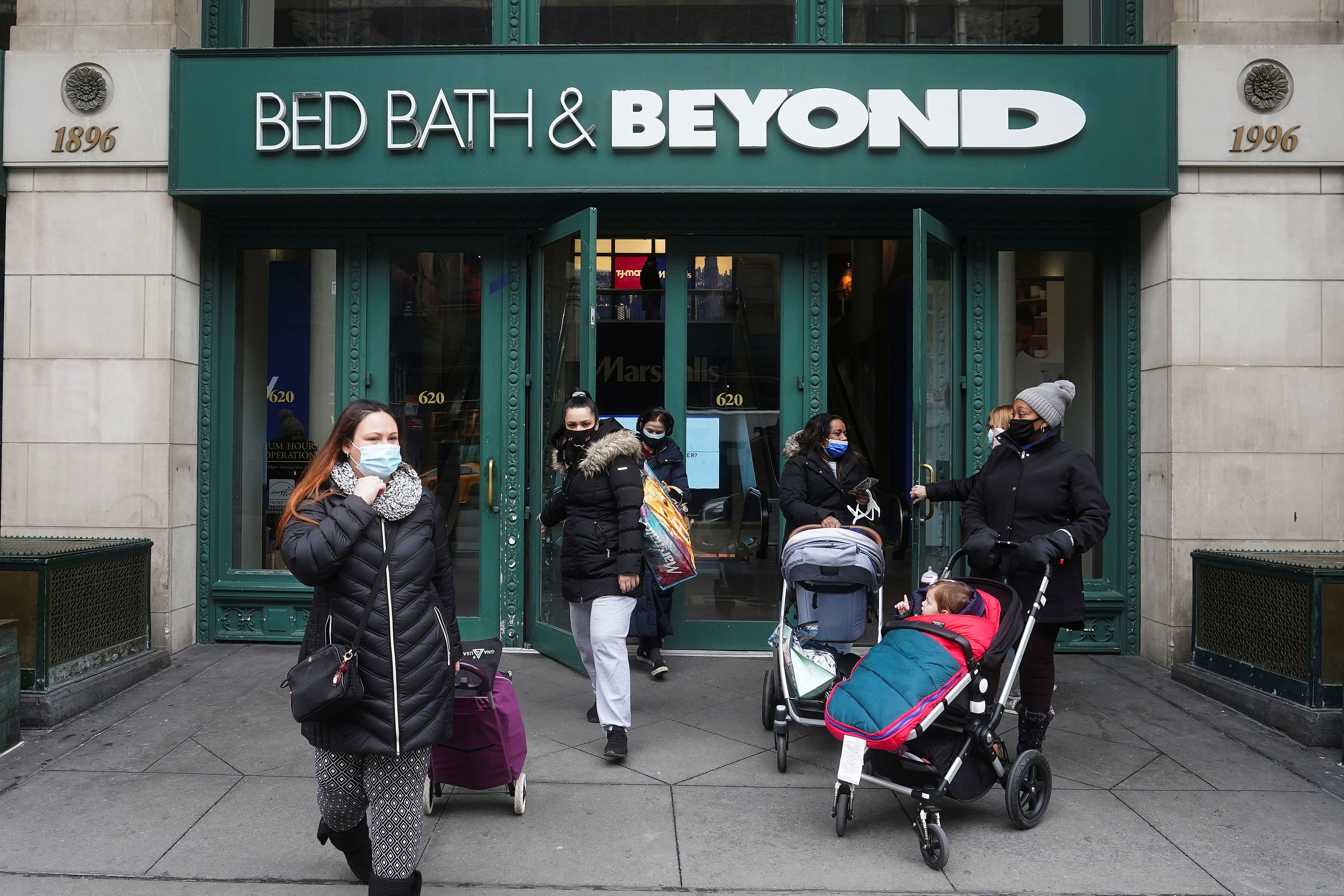
Bed Bath & Beyond’s turnaround is not enough to fix the struggling business, analysts sayDisney owns two-thirds of Hulu and has an option to buy the remaining 33% from Comcast as early as January 2024. Some analysts and industry watchers have speculated Comcast might try to buy Hulu from Disney rather than the other way around. Comcast Chief Executive Brian Roberts has been a long-time believer in Hulu and has historically pushed to keep the asset rather than sell, including in 2013, when Roberts nixed talks with DirecTV, according to people familiar with the matter.Comcast broached the idea of buying all of Hulu from Disney after Disney agreed to acquire the majority of Fox’s assets as part of a $71 billion deal that closed in early 2019, said two of the people, who asked not to be named because the discussions were private. Disney, armed with 66% ownership after acquiring Fox’s minority stake in Hulu, dismissed the idea, the people said.Blocked from buying all of Hulu, Comcast’s sustained belief in the business led to the unusual agreement the two companies reached in May 2019, with Comcast agreeing to sell Disney its minority stake as early as 2024. As part of that transaction, Disney guaranteed a sale price valuing Hulu at a minimum of $27.5 billion.That amount spiked earlier in the pandemic, giving Comcast some hope that Disney may choose to unload Hulu rather than pay Comcast a huge check for the remainder, two of the people said. Offloading Hulu would have allowed Disney to put its focus and money primarily on Disney+.”I think if Disney could roll back the clock today, I’m not so sure they would enter into that deal,” said Neil Begley, an analyst for Moody’s Investors Services. “Disney has this huge bill to pay in 2024 at a time when they’re already investing a lot of money into Disney+.”Acquiring Hulu from Disney would also supercharge Comcast’s streaming efforts. Hulu would instantly become Comcast’s flagship streaming asset, replacing NBCUniversal’s Peacock, which has added just 13 million paid subscribers in its nearly two years of existence. Hulu has 46.2 million subscribers. Peacock could live on as NBCUniversal’s free advertising-supported option. Peacock already has a free tier, with millions of users.Several top Comcast executives also think Hulu doesn’t make as much sense paired with Disney’s assets as it would at NBCUniversal, especially with the recent announcement that Disney+ plans to launch an advertising-supported tier in December, according to people familiar with the matter. Hulu has been Disney’s advertising-supported service for years. Disney could have positioned Hulu as its advertising play going forward, but CEO Bob Chapek has chosen to make versions of both Disney+ and Hulu with and without commercials.Spokespeople for Disney and Comcast declined to comment.Bob Chapek, CEO of the Walt Disney Company and former head of Walt Disney Parks and Experiences, speaks during a media preview of the D23 Expo 2019 in Anaheim, California, Aug. 22, 2019.Patrick T. Fallon | Bloomberg via Getty ImagesWhy Disney wants HuluNetflix’s slowing growth this year has led to an overall devaluation in the streaming sector. Comcast executives value Hulu “significantly higher” than $27.5 billion, and possibly up to $50 billion, one of the people said. That’s down from around $60 billion during the pandemic, the person said. If Disney sticks to its plan to buy out Comcast by January 2024, there’s still time for significant valuation fluctuations.Disney’s decision to lower Disney+’s 2024 guidance and its subsequent move to raise prices signaled to Wall Street that Chapek is no longer focused on adding subscribers at all costs.It’s sent a signal to Comcast that Hulu is likely in Disney’s long-term plans. Excluding Hulu with Live TV, Hulu’s average revenue per user is $12.92 per month. That’s nearly triple Disney+’s global ARPU of $4.35 and more than double Disney+’s ARPU in the U.S. and Canada ($6.27).Disney has built a streaming strategy around bundling Disney+, Hulu and ESPN+. While Disney raised Disney+’s price by 38% and ESPN+’s price by 43%, it only bumped its bundled offering of Disney+, Hulu (with ads) and ESPN+ by $1, from $13.99 to $14.99. That suggests Disney’s most preferred option is customers pay for the entire bundle, including Hulu.Media and entertainment companies have begun focusing on building profitable subscribers, rather than simply acquiring subscribers, in recent months as industrywide streaming growth has slowed. If Disney isn’t trading on Disney+ growth, Hulu becomes a more important part of its long-term strategy.”People are getting more judicious about their spend,” Kevin Mayer, Disney’s former head of streaming, said on CNBC last month. “There’s a renewed emphasis from Wall Street not just on the topline subscriber number but on the bottom line. I think that’s healthy.”Comcast vs. DisneyThere’s also the issue of competitive dynamics. A primary reason Disney held on to Hulu, and acquired other Fox assets, was specifically to keep them from Comcast, according to people familiar with the matter. Handing Hulu to Comcast would alter the balance of power in the media world and weaken Disney, then-CEO Bob Iger thought, the people said.Comcast has already taken steps to weaken Hulu, assuming Disney will keep it. Earlier this year, Comcast made the decision to remove content such as “Saturday Night Live” and “The Voice” from the streaming service and put it on Peacock instead. That change takes place later this month.Comcast has already earmarked some of the proceeds it’ll receive toward paying down debt. Comcast executives say they don’t need the cash and aren’t independently looking to accelerate a timeline, two of the people said.Dan Loeb’s desireDaniel LoebSimon Dawson | Bloomberg | Getty ImagesActivist investor Dan Loeb’s Third Point Capital bought a new stake in Disney last month, arguing Disney should not only complete its deal for Hulu, it should accelerate its timing.”We urge the company to make every attempt to acquire Comcast’s remaining minority stake prior to the contractual deadline in early 2024,” Loeb said in a letter addressed to Chapek. “We believe that it would even be prudent for Disney to pay a modest premium to accelerate the integration but are cognizant that the seller may have an unreasonable price expectation at this time (while noting the seller has already made the decision to prematurely remove their own content from the platform.) We know this is a priority for you and hope there is a deal to be had before Comcast is contractually obligated to do so in about 18 months.”Disney hasn’t publicly addressed the specifics of Loeb’s requests and hasn’t made a decision on whether it plans to speed up a timeline to buy Comcast’s stake in Hulu, according to people familiar with the matter.Disclosure: Comcast is the parent company of NBCUniversal, which owns CNBC.WATCH: Disney membership in the works and could offer exclusive content or experiences
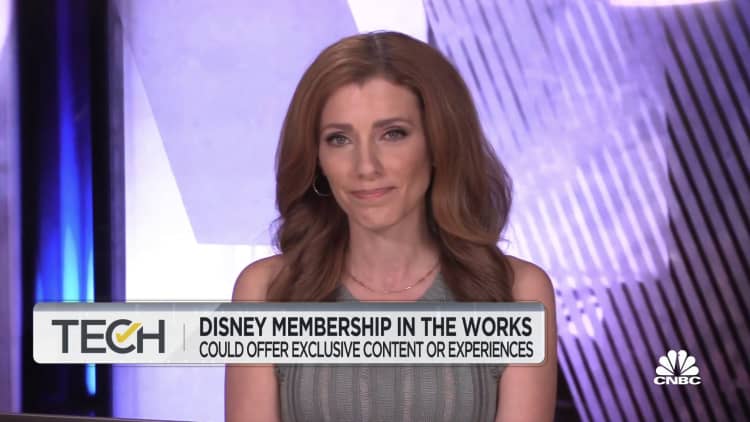 .
.
Deal of the Day: Amazon is now offering three months — for free — of its premium Audible membership
Through the end of the month, Amazon Prime members can get 3 free months of Audible Premium Plus, the online retailer’s audio entertainment platform featuring thousands of audiobooks, podcasts and more.
Getty Images
Hey la, hey la, commutes are back(ish)! While the gradual re-opening of the world means more time on the roads and tubes, it also means those of us clamoring for designated podcast-listening and reading time are finally back in the game. Through the end of the month, Amazon Prime members can get 3 free months of Audible Premium Plus, the online retailer’s audio entertainment platform featuring thousands of audiobooks, podcasts and more. It also includes one free bestseller or new release of your choice every month, in addition to complete access to Audible’s expansive library. Once the trial ends, it’s $14.95/month (compared to the regular Audible Plus membership at $7.95/month). Don’t have a Prime membership yet but considering it? Check out this guide to see if Amazon Prime is worth it for you. What reviewers say about Audible Premium Plus: The Premium Plus version of the Audible service is excellent for folks who are going to use it frequently to listen to audiobooks or podcasts, according to Wirecutter’s deal editor Nathan Burrow. “The primary difference between Premium Plus and Premium is the inclusion of a book a month of new releases and best sellers,” he tells MarketWatch Picks. “If you’re interested in these hot summer beach reads that will be on people’s radar this summer, then this trial is a great way to pursue it, see if it’s right for you and see if you want to continue.” Also, Burrow notes as far as subscriptions go, Audible is good at reminding you the triall is about to be over — they send a dedicated reminder email when your three months is almost up. Learn more: Amazon Prime members can get 3 free months of Audible Premium Plus through July 31. Another great feature of the Premium Plus offering: You can bank the monthly bestseller or new release credits you don’t use. “The credits you earn are not ‘use or lose’,” writes product and tech review site DyerNews.com. “Instead, unused credits will roll over to the next month. That way if there’s a month where you forget to use your credit or just can’t find an appealing title, you can hold onto it for the future.” For its part, Wirecutter includes Audible Premium Plus on a number of its gift guides. “We think it’s a great move if you’re in need of a last minute gift,” Burrow says. “This is a thing that you can get in a really timely way and still make somebody’s day when their birthday rolls around.” Learn more: Amazon Prime members can get 3 free months of Audible Premium Plus through July 31. Some other things to consider: If you’re not a huge bookworm and/or you already listen to podcasts on another streaming platform, you may not get your money’s worth once the trial is through. “Ultimately with all these trials, we recommend ensuring that you’ve done an audit of your subscription services and perhaps decide from there whether or not you want to continue,” Burrow says. About this column: Since you’re here, let me introduce myself: I’m Maddy Perkins, deputy commerce editor for MarketWatch Picks. I’m a recent convert to the audiobook format and took advantage of this deal myself! I’m also a big online shopper who loves a good deal — particularly when it comes to cool kitchen gadgets, electronics, fashion and beauty products. I’ll be here a few times a week to share the best deals I can find online with you. Have anything you’d like me to hunt down? Write me at [email protected]. Cheers!
The advice, recommendations or rankings expressed in this article are those of MarketWatch Picks, and have not been reviewed or endorsed by our commercial partners.
.

